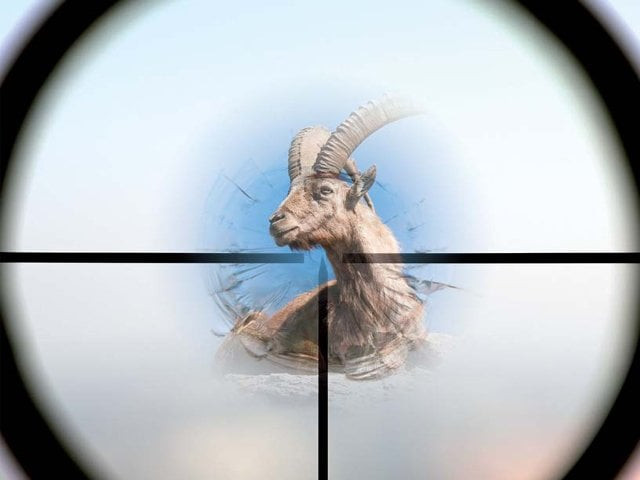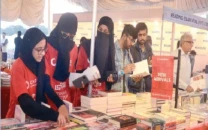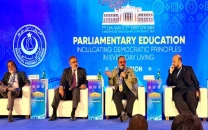New law enhances protection for wildlife
Bans posting snaps of hunted animals on social media; declares all acts hurting wild animals cruelty

Under a new law passed by the Sindh Assembly earlier this week, any person posting pictures of hunted animals and birds on social media can be sent to jail for six months.
The Sindh Wildlife Protection, Preservation, Conservation and Management Bill, 2020 aims to enhance protection for wildlife. Its passing marked the repealing of a weaker law, hardly providing any protection to wild animals, for the first time since 1972.
The new legislation has wider coverage, protecting even those wild animals that enter Sindh via trans-boundary migration or as a result of human activity.
"All wild animals, from a common crow to a turtle or other exotic species, are protected now," stated Sindh Wildlife Department (SWD) conservator Javed Ahmed Mahar. "The new law has a universal approach."
He pledged his department would adopt appropriate measures and meet the goals, obligations, targets, wildlife conventions' articles, protocols, resolutions, appendices and specimens in pursuing the objectives of multilateral environmental agreements, to which Pakistan was signatory.
Wildlife police
Further elaborating on the new law, Mahar said it authorised wildlife inspectors to register FIRs against persons charged with wildlife criminal offences.
"It gives the officer the status of a public prosecutor, besides giving SWD employees the status of wildlife protection police," he explained.
Acts of cruelty
The law further states that all acts hurting wild animals - whether intentionally or unintentionally - amount to cruelty and are strictly prohibited. It further prohibits the use of wild animals for fighting and baiting.
As per the law, people using undersized cages and enclosures, which cause discomfort to animals, for handling and transporting wild animals will also be dealt with strongly.
Establishment of council
Under the new law, a nine-member council is also to be established for guiding the SWD on the subjects of wildlife sustainability, wildlife promotion and for organising awareness drives.
The council is to have five members from private entities, including those working in the corporate sector or reputed NGOs, academics, hunters and those practicing captive breeding.
It will also assist the SWD in generating funds.
Protected areas
Under the law, the SWD can declare any estate land, wasteland and reserved or protected forest as a protected area, in entirety or partially. In these protected areas, hunting, shooting, killing, injuring, trapping, snaring or poisoning wild animals will be prohibited.
The law further imposes restrictions on damaging infrastructure and culturally significant natural structures in these areas, as well as on defacing them, counterfeiting their boundaries, encroaching these areas, and using these lands for other purposes such as cultivation.
It also states that exploration and exploitation of mines and minerals in these areas will be prohibited, as mentioned in the Third Schedule.
A step forward
The new bill marks a significant step towards protecting Sindh's wildlife and empowering the SWD, which dates back to 1972.
Prior to that, the department was called the West Pakistan Game Department. It was given the status of the Sindh Wildlife Management Board (SWMB) under the Sindh Wildlife Protection Ordinance, 1972.
The SWMB, under the supervision of Mir Ali Murad Talpur, the former ruler of the princely state of Khairpur Mirs, performed well, with renowned wildlife experts such as TJ Robert, who authored two famous books, working there at the time.
However, its performance saw a decline after the 1980s, mainly due to political interference. Unqualified district game wardens were inducted to run its affairs, and the situation reached such lows that the department was known as "shikar karne ka khata" [the department that encourages hunting], a retired SWD official told The Express Tribune.
It was not until 1994, during the tenure of former chief minister Syed Abdullah Shah, that the SWMB was upgraded to a proper department, functioning directly under the Sindh government, the retired official added.
Published in The Express Tribune, July 30th, 2020.



















COMMENTS
Comments are moderated and generally will be posted if they are on-topic and not abusive.
For more information, please see our Comments FAQ